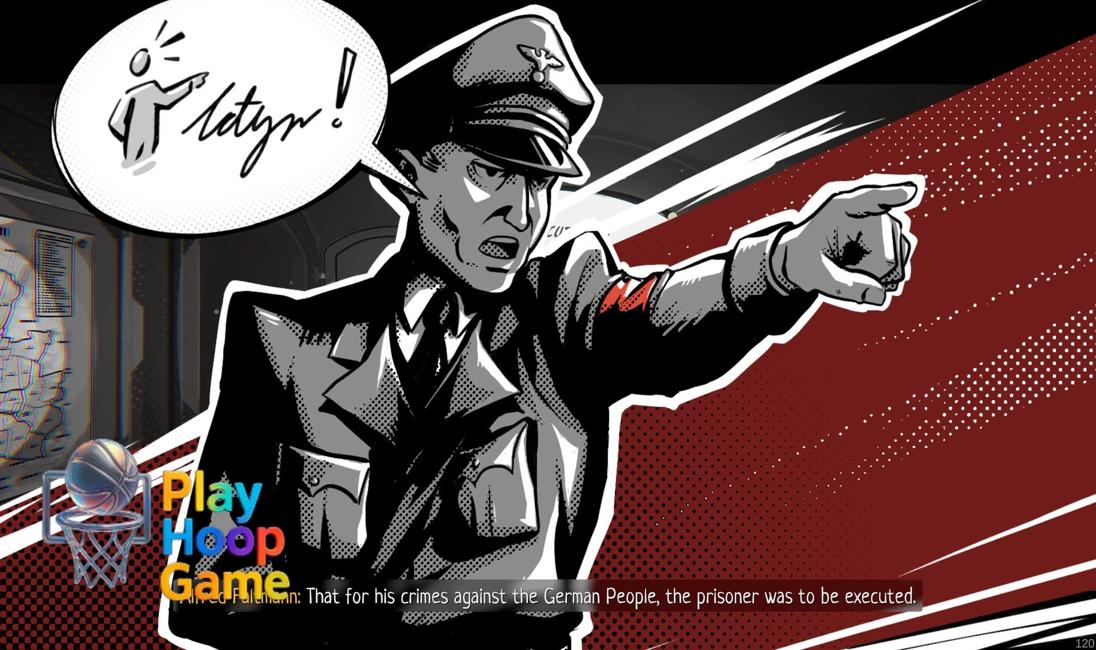Let’s be honest for a second. When you see the word “Nazi” in a video game description, your brain probably jumps to one place: a target. A faceless, goose-stepping baddie you can mow down with a BFG or a Trench Gun without a flicker of moral conflict. They’re the ultimate video game villain. The default setting for guilt-free carnage. And for decades, that’s been fine.
But a name on the upcoming Gamescom 2025 schedule has been rattling around in my head, making me profoundly uncomfortable and, I have to admit, deeply intrigued. The panel is titled simply: “Beyond the Caricature: Empathy in Unthinkable Times.” The speaker? Elena Rostova, the lead writer from a tiny, unknown studio called Veritas Interactive. The game they’re making? A narrative-driven detective noir set in 1936 Berlin. A game where you aren’t a soldier. You’re a German detective, a cog in a machine that is slowly, methodically, terrifyingly grinding away every last scrap of humanity.
There’s no super-soldier serum. No storming the beaches of Normandy. Just... survival. And a murder to solve. Suddenly, the word “Nazi” isn’t a target. It’s your boss. It’s your neighbor. It’s the shadow in every alleyway and the whisper in every conversation.
And I keep coming back to the same thought: this could be an absolute disaster. Or it could be one of the most important games of the decade.
More Than Just Jackboots and Swastikas
Veritas Interactive's project, tentatively titled The Berlin File, isn't about glorification or revisionism—at least, that’s what their sparse press releases claim. It’s about atmosphere. About the suffocating dread of a society turning on itself. Think of it less like Wolfenstein and more like L.A. Noire dropped into the world of the film The Lives of Others. You’re not collecting Nazi scalps; you’re collecting clues, navigating conversations that could get you killed, and making choices where the "good" option is often just the "least catastrophic" one.
I was skeptical at first. I mean, who wouldn't be? The potential for misstepping here is monumental. But then I read an interview with Rostova from a small German publication. She spoke about using the game mechanics to simulate the psychological pressure of the era. A dialogue system, for example, where saying the “right” thing to a Gestapo officer to advance your case feels morally disgusting. An investigation that forces you to decide whether to turn in a dissident hiding in a suspect's apartment, knowing it's the only way to get the information you need to find a killer.
Wait, there's something even more interesting here. They’re focusing on the period before the world plunged into all-out war. It reminds me a bit of the fascination players have with the pre-war world in games like Fallout, that sense of a society on the precipice. We get to see the mundane, everyday evil of a regime cementing its power. The slow erosion of freedoms, not the explosive climax. It’s a bold, terrifying, and frankly, brilliant choice.
Why The Dev Behind This Nazi Detective Game Takes The Stage At Gamescom 2025
So why take this to the main stage at Gamescom? This isn't your typical blockbuster reveal with pyrotechnics and a dubstep trailer. Gamescom is a spectacle, a celebration of fun and fantasy. Dropping a game about the creeping horror of fascism into the middle of it all feels… deliberately provocative.
And that has to be the point. Rostova isn't just there to sell a game. I’m convinced she’s there to deliver a manifesto.
I’ve been covering these events for over a decade, and you can smell the difference between a marketing spiel and a genuine mission statement. This feels like the latter. The message, I suspect, will be a direct challenge to the industry itself: We have the most powerful empathetic medium ever created, so why do we so often use it for the most superficial ends? Why are we content with historical settings as mere wallpaper? It's a conversation that's been bubbling under the surface for years, especially as we see developers grappling with complex histories in games like the upcoming Assassin's Creed Shadows.
This isn't about shaming games that are pure escapism. I love a good power fantasy as much as the next person. But Rostova's talk, and her game, represent a push for "and," not "instead of." We can have both. We can have our explosive shooters and our epic fantasies, and we can have quiet, thoughtful, gut-wrenching experiences that force us to look at the parts of our history we’d rather forget.
The Tightrope Walk of Historical Gaming
Of course, this is a tightrope walk over a canyon of fire. The risk of falling into exploitation or "poverty tourism" is immense. How do you make a game about such a horrific period without trivializing the suffering of its victims? How do you create gameplay loops—which are, by their nature, about repetition and eventual mastery—out of a situation defined by powerlessness and terror?
I don't have the answers. And frankly, I'm not sure Veritas Interactive does either. But the fact that they're even asking these questions, and forcing us to ask them, is a massive step forward. For every dozen fun but forgettable titles you can find on a portal like CrazyGames, we need one game that sticks in your craw. One that makes you put the controller down and just… think.
The pushback is predictable. "Keep politics out of my games!" some will shout, blissfully unaware that a game about a lone space marine saving humanity is just as political as one about a detective in Nazi Germany. It’s just a different, more comfortable, set of politics.
So, yes, I'll be in that conference hall at Gamescom 2025. I don’t know if The Berlin File will be a good game. It might be a clunky, overwrought mess. But I know Elena Rostova’s talk will be important. It's a sign that gaming is growing up, ready to tackle the shadows it has, for so long, been content to just shoot at from a distance.
Frequently Asked Questions About Controversial Historical Games
So, is this game trying to make you sympathize with Nazis?
That’s the big, scary question, isn’t it? From everything the developer has said, the goal is the opposite. It’s not about sympathy but about understanding the context. The aim is to show how ordinary people can become complicit in or victims of a monstrous system, forcing the player into the shoes of someone navigating that reality. The horror comes from the proximity to evil, not from identifying with it.
Why can't games just be about fun?
They can be! And the vast majority are. Think of games as a medium, just like film or literature. You have summer blockbusters and comedies, but you also have searing dramas and documentaries. One doesn't invalidate the other. Having more "serious games" doesn't mean "fun games" will go away; it just means the medium is becoming richer and more diverse.
What makes a historical game "responsible" versus "exploitative"?
It's a blurry line, but it often comes down to intent and respect. A responsible game uses its mechanics and narrative to explore the themes and human truths of a period. It focuses on empathy and understanding. An exploitative game uses a historical tragedy purely as a shocking backdrop, trivializing the suffering for the sake of "edgy" entertainment without any deeper purpose.
Where can I learn more about the dev behind the Nazi detective game and their Gamescom 2025 talk?
Right now, Veritas Interactive is a small, relatively quiet studio. The best place for updates will be the official Gamescom news outlets as the event gets closer. Following key journalists and outlets covering the event is your best bet, as details about Elena Rostova's message will likely be a major topic of discussion once she takes the stage.

























